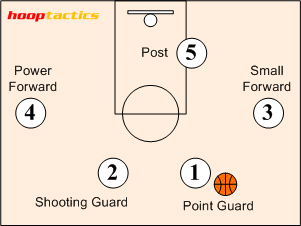Player Positions and Roles
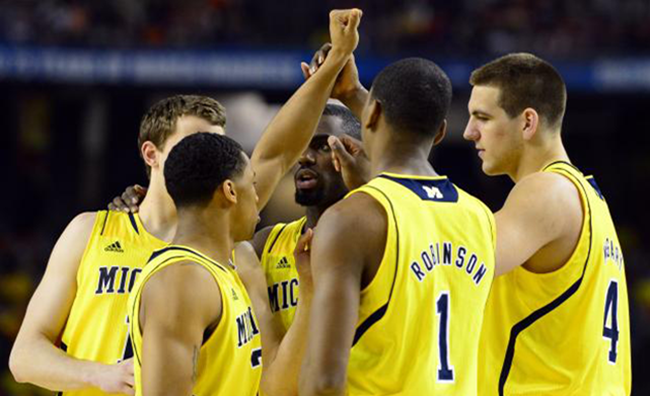
| Player Positions | Player Roles |
Typical Player Positions
In the original basketball rules there was no limit to the number of players on the court. In fact, there were games consisting of 50 players on a side. However, in today's modern game five players are allowed on the court at one time. These five players, typically, consist of two guards, two forwards and a post or center. Each of these positions requires specific responsibilities and skills.
Point Guard
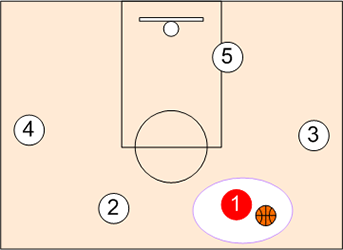
A team’s playmaker (coach on the floor). Usually the shortest player on the team. Must possess good passing and dribbling skills. Must make good decisions taking advantage of each teammate’s strengths and capabilities. Must have good court vision taking pride in passing and creating open shots for receivers. Rarely turns the ball over. Most shots will come off dribble penetration. Also, must be able to recognize opponents’ defensive deployment and defensive mismatches along with being alert to the score, time, team foul situation and timeout remaining. Is responsible for defensive balance on teammate’s shots.
Shooting Guard
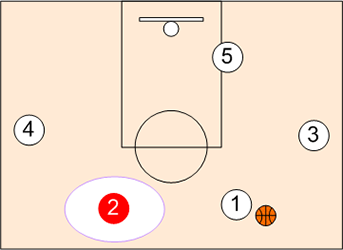
A team’s best outside shooter. Hard to guard. Must have the ability to create open shots within their range and not let ego or outside pressures take them outside their range. Knows how to use teammate’s screens to get open shots. Must acknowledge teammate’s feeds. Has offensive rebounding responsibilities along with secondary ballhanding responsibilities.
Small Forward
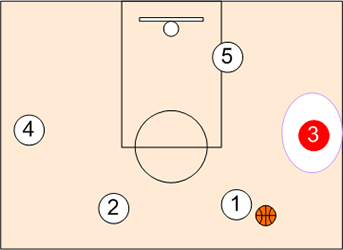
A team’s best all purpose player who can play inside and outside. Must be aggressive and strong enough to mix it up inside, but agile enough to play outside. Second best outside shooter and penetrator. Most shots will come from the baseline. Has primary offensive rebounding responsibilities along with being a team’s defensive stopper.
Power Forward
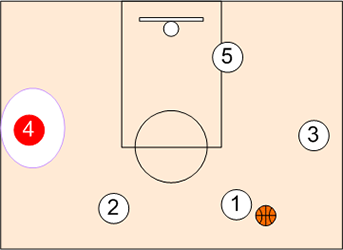
A team’s second biggest and strongest player. Must be able to post up as well as make 15’ medium range shots. Interchangeable with post. Must be able to set good screens on offense and has defensive rebounding responsibilities on defense.
Post/Center
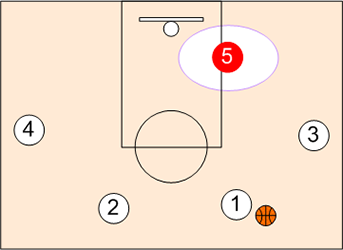
A team’s biggest, strongest player. Mainly plays in low post area near basket. Must be able to post up and be an offensive treat inside. Must be able to set solid screens for teammates. Must be able to defend the post area. Has primary defensive rebounding responsibilities. It is a definite advantage to have a dominate post player.
Caution
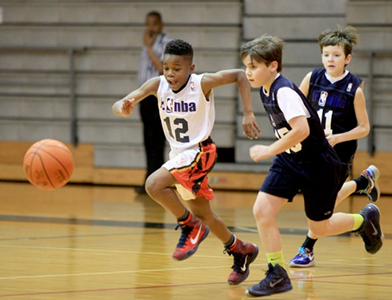
On the lower levels, it is extremely important to develop the fundamental skills and knowledge necessary to play all positions.
![]()
Basketball Player Roles
Starting Five
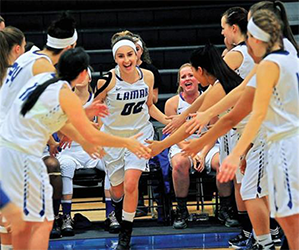
In basketball, it is not who begins the game, but who is on the floor at the end of the game that really counts.
The starting line ups consist of the five players who begin the game. Starters are most commonly the best players at their respective positions. As a result, there can be prestige and status associated with being a starter. Parents’ egos can get involved. The pre-game introduction of the starters can also these inflate egos.
Starting lineups can be a very difficult and trying task for coaches. They can vary from game to game according to opponent’s strengths and weaknesses, style of play, and individual player match ups. By varying the starting lineup according to the opponent's strengths and weaknesses, the coach is sending his strongest possible combination on the court at the start of each game. When this condition exists, there is no actual starting five. Instead, there is a real team cohesion and atmosphere.
Starting a Game Has Disadvantages
Since officials have a tendency to call more fouls at the start of the game, early foul trouble can be avoided by coming off the bench rather than starting. Players should also understand that it can be a big advantage to come off the bench during a game, since it gives a player the opportunity to watch and analyze their opponent's actions and strengths.
Offensively is the opponent a penetrator? A spot up shooter? A post up player? A screener? An offensive rebounder? A hard to guard, triple threat player. Is the opponent playing pressuring, switching, or sagging defense. How are they defending the post? Is the opponent zoning? If so, what type of zone and where are the open shots?
Starting lineups may vary according to one of the following reasons:
To allow a big player to control the opening jump ball.
To include a defensive “Stopper” against an opponent’s high scorer.
To include a good shooter against a tough zone defense.
To include a good driver against a vulnerable person-to-person defense.
To load the lineup with the best pressing combination.
To include best ball-handlers against an opponent’s pressing defense.
To off set an opponent’s height advantage.
To offset an opponent’s over-all speed and quickness advantage.
To ease young players' transition into the game action.
To protect an aggressive foul prone player from early foul trouble.
Basketball Supporting Roles
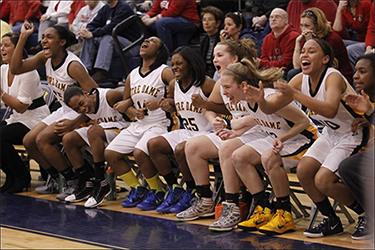
Championships are never achieved without the unselfish play of the complementary players on the team. These supporting roles, are vital to a total team effort and success.
Sixth Person(s)
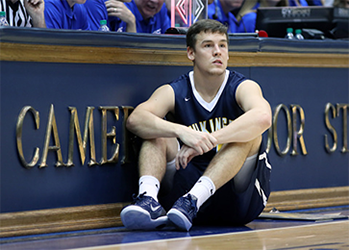
A team's first sub. The importance of the sixth person(s) role in basketball cannot be over emphasized. It is one thing all excellent teams have in common. Establishing and utilizing the sixth person role, in many ways, is a much more important coach’s decision than determining the starters. To be successful, the sixth person(s) must possess better skills and leadership than some of the starters. In addition, the sixth person usually can play multiple positions. Without exception, when they enter the game, their role is to energize and make the team stronger.
In most cases the sixth person role is filled by a single player. However, it can be multiple players and on rare occasions even five players. Determining and getting a player to accept the sixth person role can be a challenge since player's and parents' ego's can be involved. However, by communicating the vital importance of this unselfish team role, they should be more than likely to understand and accept the role as a real honor rather than a demotion.
Defensive Stopper
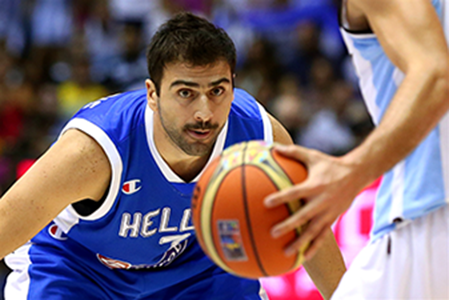
A vital but often overlook position is a defensive Stopper. Having an outstanding defensive player, one who not only can deny or disrupt great offensive players from receiving the ball and are masters of one on one defense, is essential to any championship hopes. A Defensive Stopper's role is entirely defense. Points denied or not scored are just as important to the outcome of a game as points scored. Since a Defensive Stopper’s role is primarily that of a defensive specialist, any offensive output is a bonus. Their main job is to Stop not score.
Defensive Stoppers must be developed and strongly supported. Like shooters, stoppers are not born and just don’t happen. They must be developed and nourished. Successful Defensive Stoppers are a result of having solid on and off ball defensive fundamentals along with a strong attitude and relentless determination. Defensive Stoppers are highly challenged and motivated when it comes to stopping and frustrating the opponent’s leading scorer.
Designated Inbounder
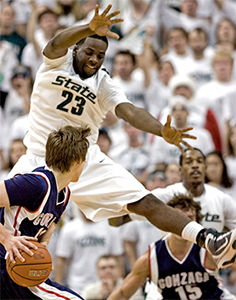
Good Inbounders are hard to find. It is not easy to inbound the ball. In making an inbounds pass, the passer is facing a five against four defensive advantage and only has five seconds in which to locate an open receiver and make a successful inbounds pass. In addition to this numerical disadvantage, by rule the inbounder cannot move, except after a made shot. This provides the defense with the opportunity to jam or smother the passer very effectively with an active defender.
Good Inbounders must be developed. Players must be taught and practice the fundamental skills and techniques required in making successful inbound passes. In additional to good passing skills, inbound passers must also possess a strong commitment to team play since they are taken for granted and very rarely acknowledge for their efforts.
Inbounders must also know the out of bounds rules. Inbounding the ball rules are taken for granted and under taught, on all levels of the game including professional. However, on out of bound situations, inbounders are faced with some of the most complex rules in the game. As a result, games are lost every year simply because players are not taught the rules.
Designated Free Throw Shooter(s)
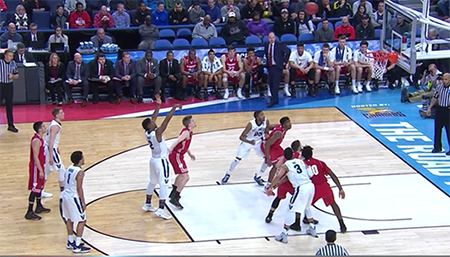
When ahead at the end of a game designated free throw shooters play a vital role of protecting the hard earned lead. In situations where the opponent must foul, you definitely need your best free throw shooters under pressure on the floor. Designated free throw shooters must also possess the ability to spread the floor and move the ball without getting foul. Being able to avoid being foul at the end of the game takes precious seconds off the game clock and, as a result, prevents any success of the opponent's end of game fouling strategy. In addition, a designated free throw shooter can be used for shooting technical fouls. In technical foul situations, since the free throw shooter must stand alone, they are not easy.
Basketball Support Staff
Basketball programs, on all levels, include support staffs of highly qualified, hardworking and dedicated people. Although they are not actually on the court, these support roles are an integral part of every basketball team. They include: team managers, Video Coordinators, Athletic Trainers, Official scorers and timers, and statisticians.
Team Manager(s)
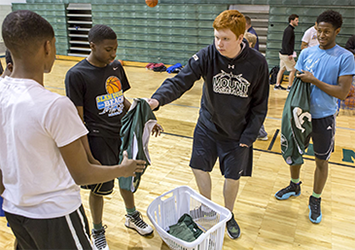
Team managers are very efficient, hardworking, and devoted coach’s aides. They are the coach’s right hand person. Team managers play an important role during both practices and games. Normally, they are the first to arrive and the last ones to leave the gym.
Video Coordinators
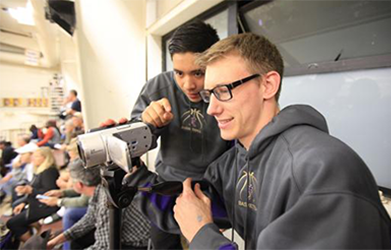
Videotaping plays a very important role in post game team and individual player performance analysis. Videotaping is not an easy task. It requires a lot of dedication along with the knowledge and expertise of the various filming and editing techniques. On the upper levels of the game, a video coordinator is a full time staff position.
Scorer's Table Staff
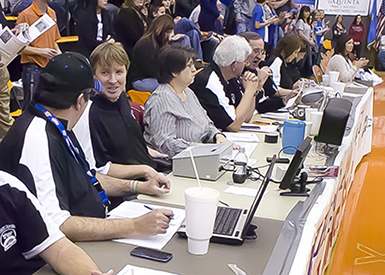
Score table personnel include an Official Scorer, Official Timer, Shot Clock Operator, along with Game Announcers. In addition to equipment set up and usage, they must have a working knowledge of the various timing and scoring rules and regulations.
Statisticians
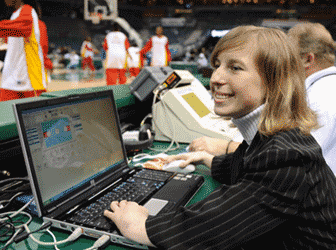
Technology has dramatically changed the huge burden of capturing and compiling basketball statistics. In the process, it has created a whole new field of basketball analytics. However, for statistics to be of value, they must be accurate and immediate. As a result, basketball statisticians have become a very vital part of a team.
Next learn how to read and interpret play diagrams - Click Here
Return to Basketball Basics' Main Menu - Click Here
